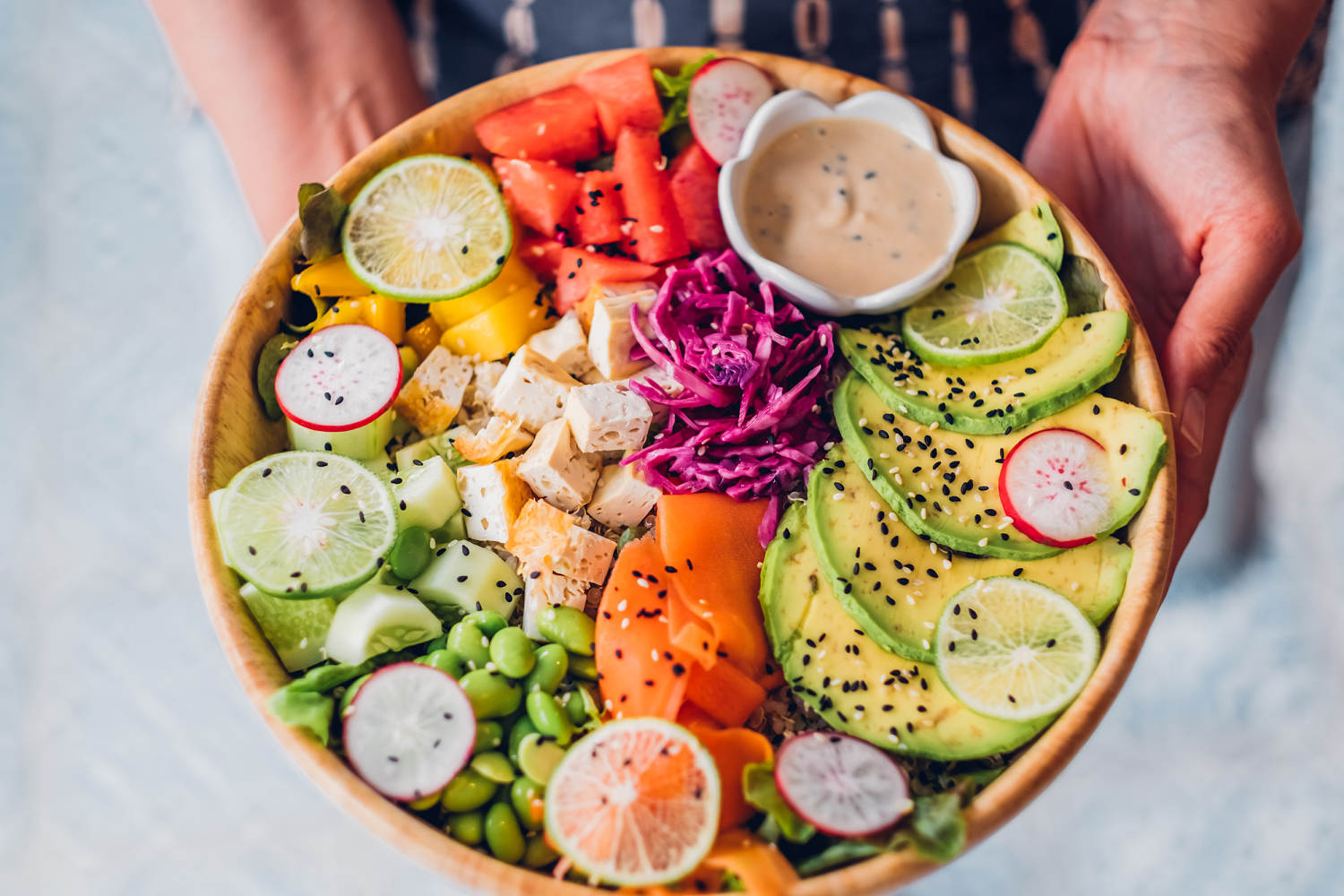
Eating food that lowers inflammation in the body may help people with advanced colon cancer survive longer, according to research presented at a meeting of the American Society of Clinical Oncology in Chicago.
The findings, presented Sunday, suggest that cancer patients can have at least some control over the outcome of their disease, even at later stages.
“This is the most common question that patients ask me when I see them in clinic,” said Dr. Kimmie Ng, an author of the new study and associate chief of the division of gastrointestinal oncology at Dana-Farber Cancer Institute in Boston. “What is it that I can do myself to try to improve my chances, help me live as long as possible?”
Ng’s study — which has not yet been published in a peer-reviewed journal — looked at the diets of 1,625 adults with stage 3 colon cancer, meaning the cancer has spread to nearby lymph nodes, but not to other parts of the body.
With standard care — surgery and chemotherapy in most cases — about three-quarters of patients can expect to live at least five years after their diagnosis, according to the American Cancer Society.
The new research suggests diet may influence those odds.
“What’s unique about colon cancer is that it’s a cancer of the digestive tract,” said Dr. Sara Char, Ng’s co-author and a clinical fellow in hematology and oncology at Dana-Farber Cancer Institute. “What we eat will inevitably go through the colon.”
All the patients in the new analysis got the same treatment: surgery, followed by three to six months of chemotherapy. They also filled out dietary questionnaires during and after their chemotherapy treatments. Researchers followed up on the participants for five years.
Patients who regularly ate foods that promote inflammation in the body — ultraprocessed foods, excessive amounts of sugar and saturated fats — had up to an 87% higher risk of dying from their disease when compared to people who ate a far less inflammatory diet.
The less-inflammatory diet was more plant-focused, and included foods such as leafy greens, carrots, coffee and tea.
Real-world examples
Cancer centers have dietitians who work with patients to make sure they’re getting proper nutrition while they’re going through treatment, said Heather Greenlee, medical director of integrative medicine at Fred Hutchinson Cancer Center in Seattle. Chemotherapy, for example, can come with side effects, including difficulty swallowing and poor appetite.
Once treatment is done, patients may need additional help making dietary changes to improve survival long term.
“The issue that a lot of patients face is that people don’t know how to make these dietary changes that are sustainable over time,” said Greenlee, who also wasn’t involved with the research.
Greenlee heads Fred Hutch’s Cook for Your Life program for people who’ve had cancer.
“It’s really important for big studies like this to be done to show that there is this potential benefit for lifestyle and behavioral changes in the face of some of these cancers that are difficult to treat,” she said.
She recommends a plant-focused approach, such as adding beans, broccoli and cauliflower to meals, as well as high-fiber foods. “Those are all good places to start,” Greenlee said.
Exercise boost
Patients also boosted their chances of living longer with physical activity.
People who ate diets least likely to promote inflammation and who did the equivalent of taking a brisk walk for an hour at least three times a week had a 63% lower risk of death from any cause during the five-year follow-up period.
A separate study, also presented Sunday at the cancer meeting, found that regular exercise was linked to a 28% lower risk of the cancer recurring, a new cancer diagnosis or death.
More than 150,000 people are diagnosed with colorectal cancer every year, according to the American Cancer Society.
“Not only can healthy lifestyle choices, like diet and exercise, have an impact after a cancer diagnosis,” said Dr. Julie Gralow, chief medical officer of the American Society of Clinical Oncology, “they are absolutely as good as the benefits we see from drugs, and probably even better.”
